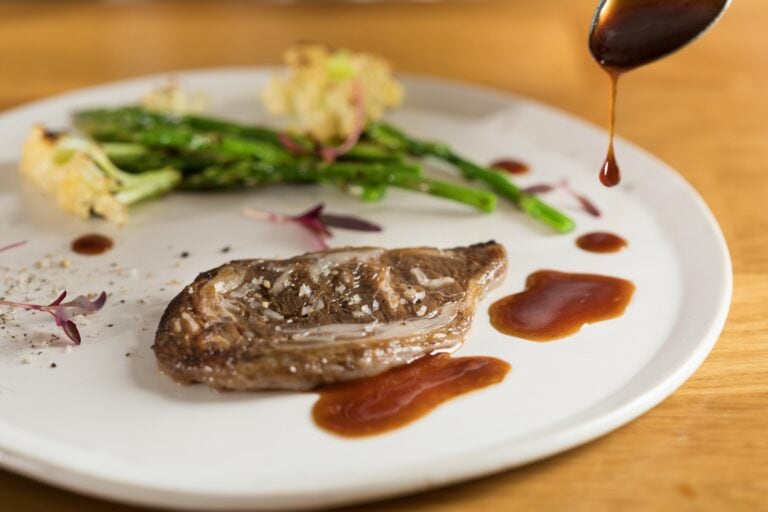In a world first, Aleph Farms of Rehovot has received regulatory approval from Israel’s Ministry of Health to introduce its unique Aleph Cuts cultivated beefsteaks in the Israeli market.
“This green light is the first ever for non-chicken cultivated meat anywhere in the world. It is also the first for cultivated meat of any kind in the Middle East, where solutions to food insecurity and climate change are woven into the very fabric of regional collaboration,” the company announced.
Aleph Cuts’ first commercial product, Petit Steak, is made of non-modified cells of a premium Black Angus cow named Lucy, as well as a plant protein matrix of soy and wheat.
Aside from starter cells from one of Lucy’s fertilized eggs, no animal-derived components or antibiotics are used in the cultivation process or the final product.
“A controlled and traceable process, including an aseptic production environment, increases transparency and greatly reduces any risk of contamination,” the company explains.
One advantage of cultivated steak is environmental; conventional cattle farming has the highest environmental footprint of all animal agriculture and many regions are especially reliant on imports for beef.

Another advantage is that beef delivers the highest value of common animal proteins in global markets, shortening the timeline to price parity.
“The entire Aleph team has united in strength and determination to deliver no matter what during these difficult times in Israel,” said Didier Toubia, CEO and Co-Founder of Aleph Farms.
“We are excited to carry this resilience forward in the form of innovation in agriculture and food security. Such innovation has been at the heart of Israel’s vision from the country’s very beginning, from early kibbutz practices to modern drip irrigation,” he said.
“With its global leadership in cellular agriculture, Israel continues to push for greater regional integration and economic collaboration, which will be crucial for stabilizing the region. We believe that addressing joint challenges like food security is the best way to ensure the prosperity of the Middle East and other parts of the world that rely heavily on massive food imports, especially in Asia.”
Alla Voldman, VP of Strategy & Policy at The Good Food Institute Israel, said this achievement “underscores Israel’s unwavering support of its alternative protein sector, which stands out globally. Three out of the first eight cultivated meat companies worldwide are Israeli, and 15% of global investments in the field are allocated to Israeli cultivated meat companies. This ecosystem includes the world’s largest cultivated meat consortium, led by Tnuva with an investment of around 60 million shekels from the Israel Innovation Authority.”
Dr. Ziva Hamama, Food Risk Management Department Director at Israel’s Ministry of Health added that this regulatory milestone, “the first of its kind worldwide, reflects a comprehensive assessment of crucial factors, from toxicology and allergens to nutritional composition, microbiological safety, and chemical safety throughout the entire production process – from the initial cell isolation to processing and packaging.”















